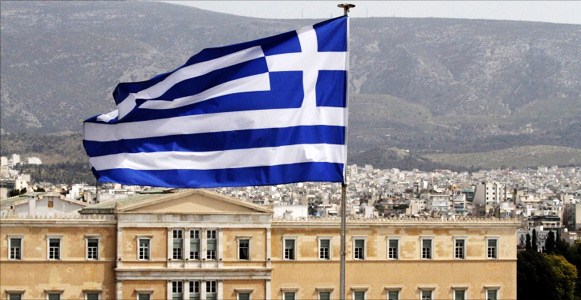
Like most Canadians, the TSX took a break for Canada day celebrations on Friday after posting four consecutive positive days. And to the south, U.S. stocks posted their biggest weekly rally in two years with the Dow Jones Industrial Average rising 648 points after Greece took action to avoid default on its debt.
“It’s a week of major reversal,” said Stephen Lieber, Chief Investment Officer of Alpine Woods Capital Investors, a New York investment firm with $7 billion under management.
Stocks rose this week after Greek Prime Minister George Papandreou secured enough votes to pass the first part of an austerity plan aimed at meeting European Union aid requirements and lawmakers backed a bill on June 30 to authorize the measure. Greece could receive as much as 85 billion euros in new financing, including contributions from European banks and private investors, in a second bailout aimed to prevent default by the debt-laden nation.
“People are relieved that the Greek situation is seemingly contained for the next couple of months. Also the most recent economic news out of the U.S. has not been as bad as feared,” said Lex van Dam, hedge fund manager at Hampstead Capital, which manages nearly a half a billion dollars. TSX miners fared well as investors’ risk appetite reflected the sentiments of Mr. van Dam. We take a look at the three top performing mining stock on the TSX in a week where investors let out a collective sigh of relief and the bulls outnumbered the bears.
1. Capstone Mining Corp. (TSX: CS)
Weekly gain: 20.5%
Closing price: $3.59
On July 20th, Capstone Mining released the results of an initial mineral resource estimate for the Mala Noche Footwall zone (MNFWZ) at the Cozamin mine in Zacatecas, Mexico. Measured + indicated resources were reported to be 74.2 million pounds of copper grading 2.32% and 1.7 million ounces of silver grading 36.6%. Earlier that week, Capstone closed the acquisition of Far West Mining. “The size and grade of this new mineral resource estimate allows Capstone to now consider production expansion scenarios as well as extended mine life in an upcoming prefeasibility study to begin in the third quarter of 2011,” said Brad Mercer, Vice President Exploration.
On May 26th, 2011, TD Newcrest analyst Craig Miller reissued a buy rating on Capstone and has a 12 month price target of $4.75 on the stock, down slightly from TD’s $5.50 target issued late last last year.
2. Labrador Iron Mines (TSX: LIM)
Weekly gain: 20.1%
Closing price: $12.25
On July 30th, Labrador iron Mines reported a year end loss of $3.97 million in their fiscal 2011. But tucked in the press release was a sound-bite that investors had been waiting for. On June 29, 2011, the first loaded iron ore train departed the company’s Silver Yards facility for the Port of Sept-Iles. This historic event is the first commercial iron ore train from the Schefferville area in almost 30 years.
Labrador Iron Mines was featured by MiningFeeds.com as one of 10 Base Metal Stocks to Watch in 2011 and Haywood Securities analyst Geordie Mark noted, “Labrador Iron Mines is set to become Canada’s next iron ore producer coming into production this month. The company intends to deploy the cash from its recent financing and cash-flow from operations to expand output over the next few years so the timing looks perfect to take advantage of elevated iron ore prices.” CLICK HERE – for the full article.
3. Volta Resources Inc. (TSX: VTR)
Weekly gain: 19.0%
Closing price: $1.63
On July 29th, Volta released an updated NI 43-101-compliant mineral resource estimate for the Kiaka gold project in Burkina Faso, . The report, prepared by SRK Consulting United Kingdom, highlighted a 3.01 million ounce of measured + indicated gold resource. “Our drilling programs have more than doubled the mineral resource base from last year’s estimate at Kiaka while also significantly increasing the confidence of the geological model,” stated Kevin Bullock, Volta’s president and chief executive officer.
Burkina Faso, formerly called the Republic of Upper Volta, was renamed on August 4th, 1984, by then President Thomas Sankara in an effort to shed the country’s colonial past. Figuratively, “Burkina” means “men of integrity” in Mòoré and “Faso” means “father’s house” in Dioula – from the two major languages spoken in the West African nation. For his efforts, Mr. Sankar was later killed by an armed gang with twelve other officials in a coup organised by his former colleague, Blaise Compaoré. Lately, the incumbent government has been dealing with rebellious soldiers who have taken to the streets demanding daily food allowances and a housing subsidies among other things. On May 31st, the presidential guard was sent to put down the most recent rebellion. Nearly 60 soldiers were arrested, according to military authorities, who have announced that they will be charged with “rebellion and theft”.



 Follow us on Twitter
Follow us on Twitter Become our facebook fan
Become our facebook fan










Comments are closed.